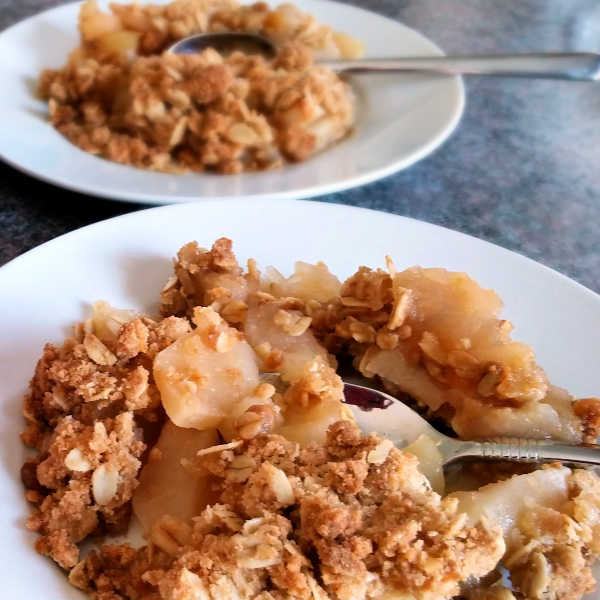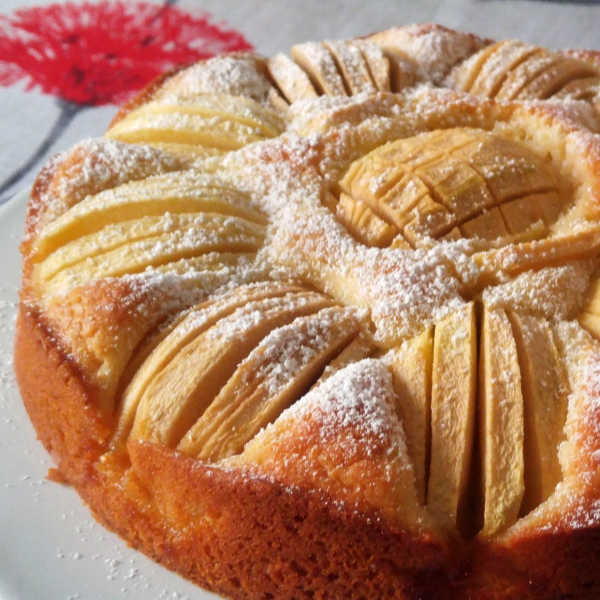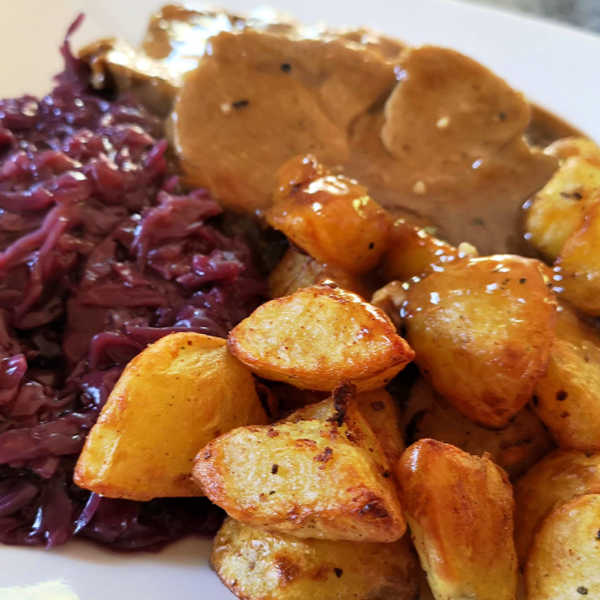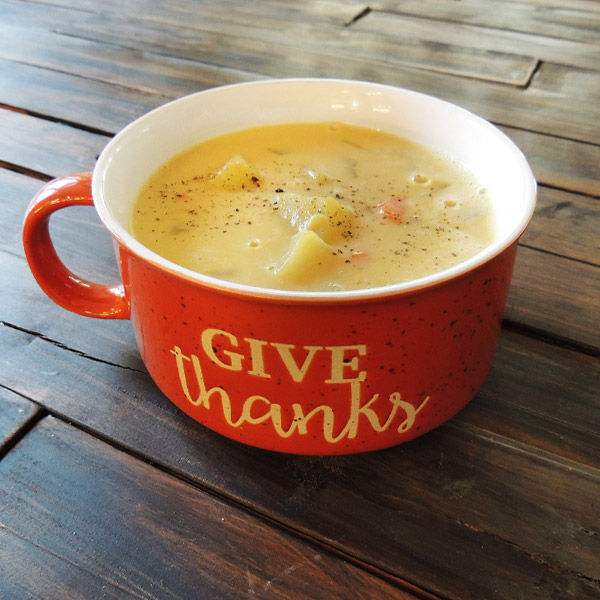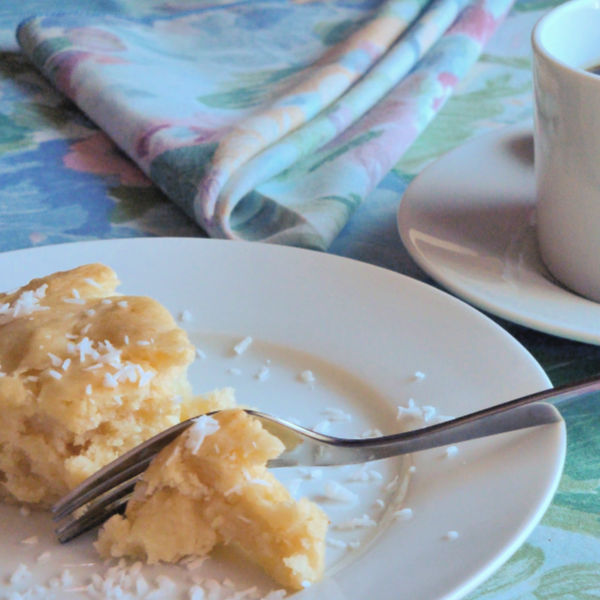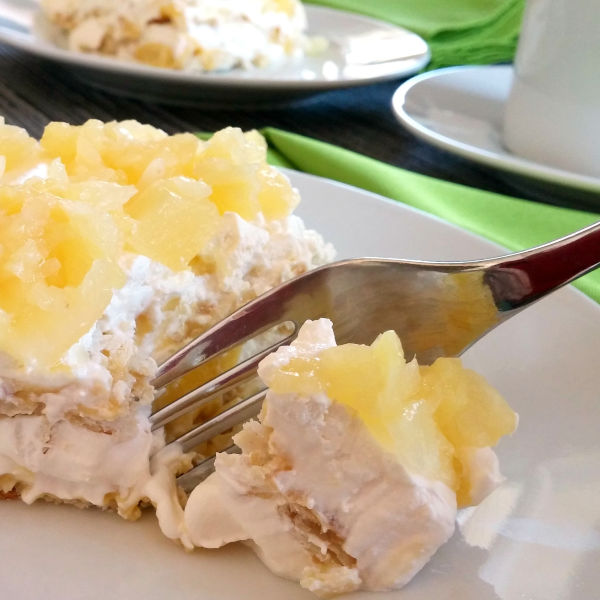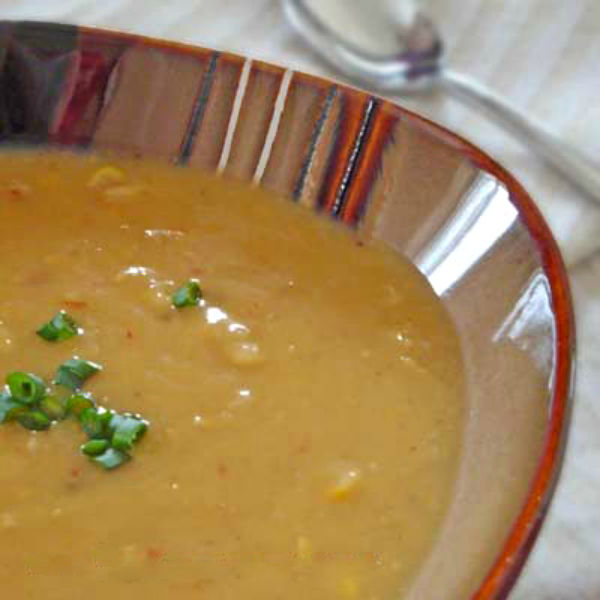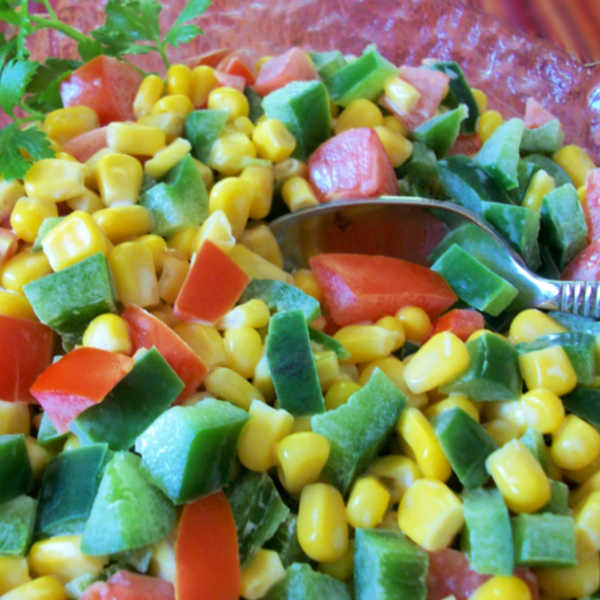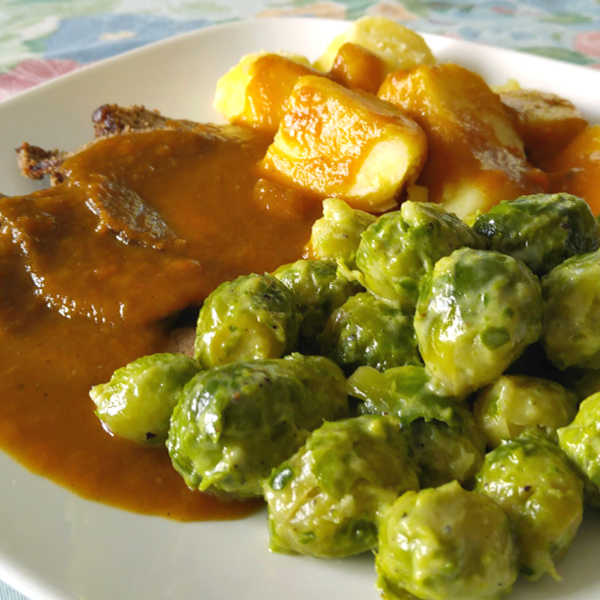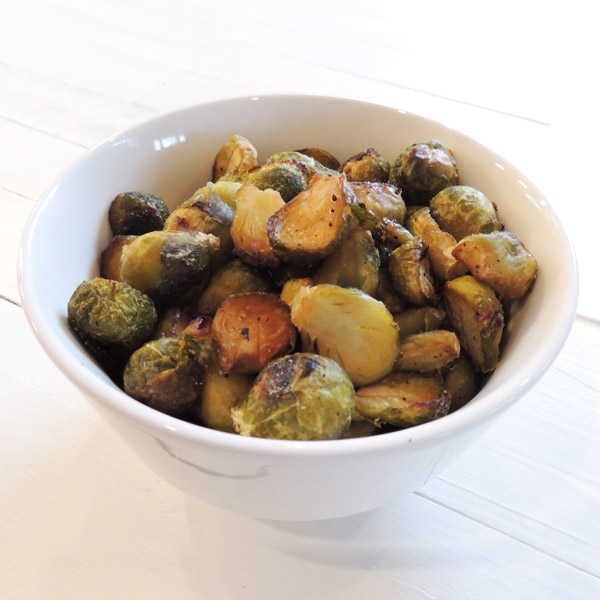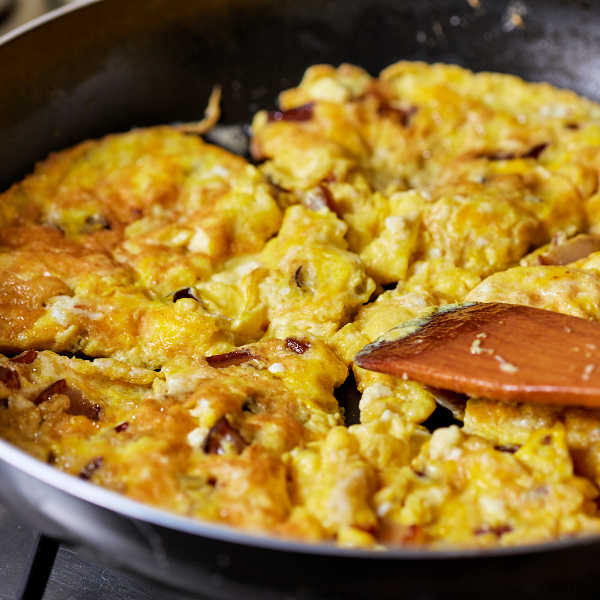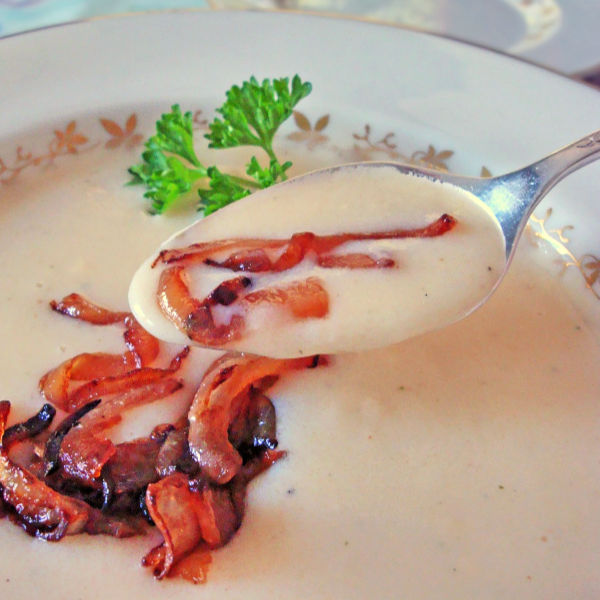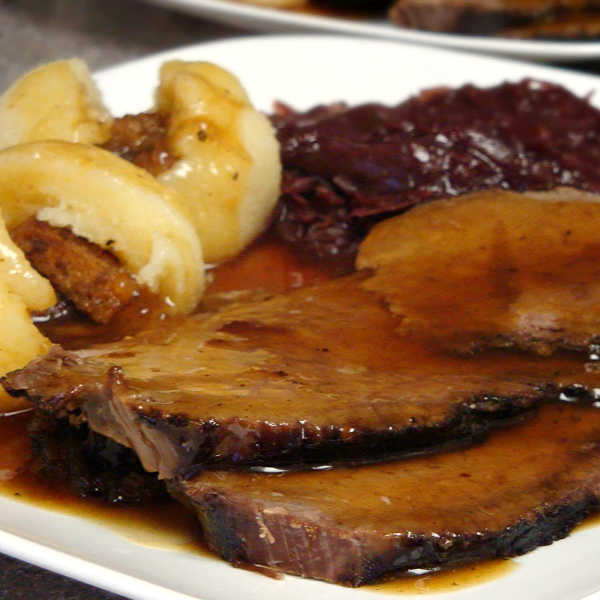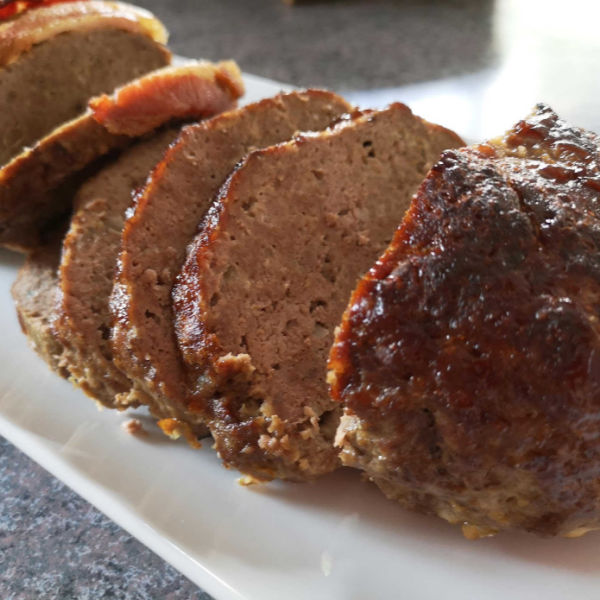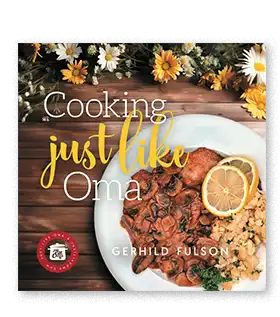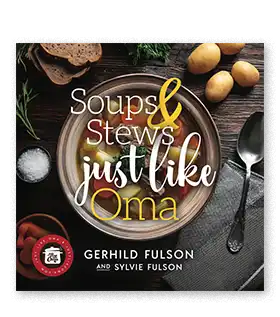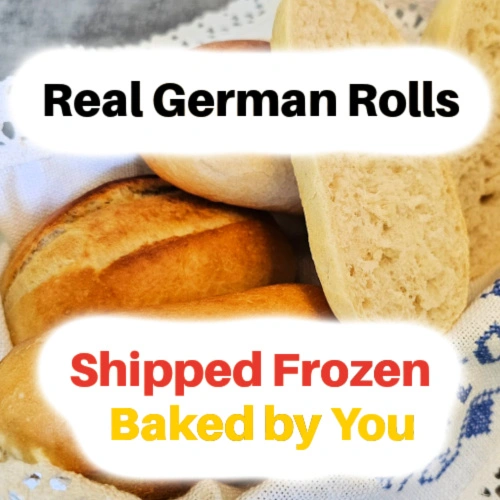Spice up your inbox with FREE German recipes and an exclusive free recipe ebook!
Warm up this winter with Oma's newest cookbooks - available on Amazon >>
- Home
- Culture and Customs of Germany
- German to English Words
You asked, we answer EDITION
You say "Apfel", I say, "Apple"
The Surprising (& Tasty!) Journey Of German Words In English

by: Mike Fulson / Artist, Tech Guy, German son!
We had someone ask this question recently (and similar have been mentioned often in our Kaffeklastcher Facebook group):
"Why is it that German towns are not properly translated? Donau is called Danube, Köln is called Cologne, München is Munich, etc., etc.”
When talking about a city or a geographical location, and foreigners use a different place name than by the inhabitants of that place, it's called an "exonym".
A great example is that "Germany" is an English exonym for "Deutschland." :)
And if you want to find out more about cities' names, etc., Eran's got a new article all about that at Tour My Germany!
But here, we talk about food. And since these differences also happen with food, let's go ahead and find out more!
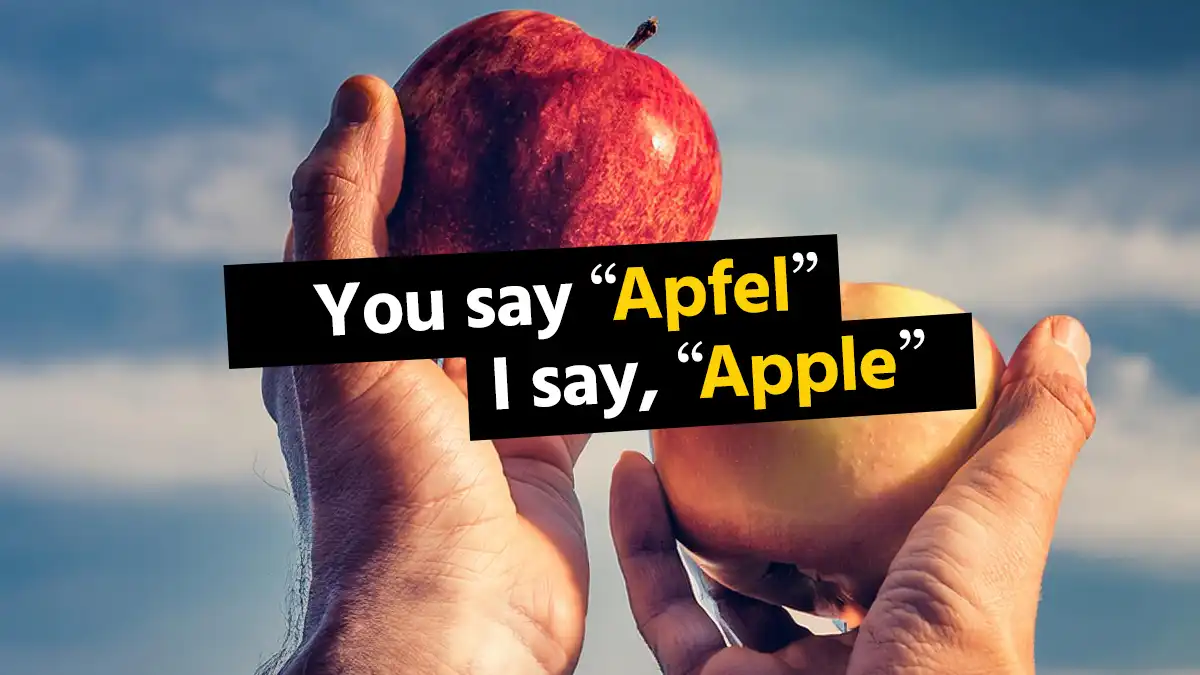 The very intriguing world of exonyms... where "apfel" is "apple" and "Deutschland" is "Germany!"
The very intriguing world of exonyms... where "apfel" is "apple" and "Deutschland" is "Germany!"Food in translation
Apfel - Apple
Both words come from the earliest form of the Germanic word, "aplaz". The difference in spelling and pronunciation is an example of how over time letters changed to make the words we use today.
However you say it, apples are one of my favorite fruits to enjoy in desserts!
Apple Crisp:
This is the ultimate apple crisp experience with oatmeal-topped deliciousness! Juicy, simple, and quick to prepare. This German-inspired twist on the classic recipe results in a nuttier flavor that's wunderbar!
Traditional German Apple Cake:
Take a simple vanilla batter, top with partially sliced apples, and as it bakes, the cake rises around the fanned fruit, creating a beautiful dessert that's surprisingly quick and easy to make.
Kartoffel - Potato
The German word "Kartoffel" comes from the Italian "tartufolo" (truffle), as potatoes were thought to resemble truffles when first introduced to Europe. The English "potato" comes from the Spanish "patata."
Crispy Roast Potatoes:
Crispy and golden, these skillet-seared spuds are quick and easy to prepare. You'll find yourself reaching for this recipe time and again, whether you're whipping up a quick midday meal or planning a satisfying supper.
Easy Vegetarian Potato Soup:
Experience the comfort of a classic German potato soup re-imagined without dairy (for those of us that are lactose-intolerant!). This combines potato chunks, veggies, and cashew cream to make it sooo good!
Ananas - Pineapple
In German and many other European languages, the word for pineapple is derived from the Tupi-Guarani word "nanas." English, however, uses "pineapple" because early explorers thought the fruit resembled pine cones!
Its sweet flavors makes for some real sweet desserts...
Easy Pineapple Cake:
Whip up this super simple German pineapple cake in no time! Just toss everything in a bowl, give it a stir, and pop it in the oven. Once it's done, sprinkle some coconut on top for a tasty, Southern twist.
Oma's Easy Flaky Dessert:
Oma's super-easy flaky treat is like a shortcut to German Blätterteig or French puff pastry, but way simpler! This quick dessert always gets people asking for seconds. It's seriously delicious!
Mais - Corn
FYI! The Taíno were a people from South America who had migrated to the Caribbean -- and a number of English words have Taíno roots like "barbecue", "canoe", "hurricane", "hammock" and "tobacco".
Germans use "Mais," derived from the Spanish "maíz," which comes from a Taíno word. English commonly uses "corn," an Old English word originally meaning any grain.
Oma's Easy Corn Chowder:
This simple corn chowder's creamy texture and rich flavor will warm you from the inside out, and the best part? It's a breeze to make! Perfect for those busy evenings when you need a quick yet satisfying meal.
Corn Salad:
This corn salad features bright, colorful ingredients that make it not only a yummy-tasting dish, but it also looks good on your plate!
Rosenkohl - Brussels Sprouts
The German form of the word, "Rosenkohl," means "rose cabbage," while English uses "Brussels sprouts," named after the Belgian city where they were originally grown.
Creamed Brussels Sprouts:
This Brussels sprouts recipe uses affordable frozen sprouts to create a bold side dish that complements most meats.
Roasted Brussels Sprouts with Balsamic Vinegar & Maple Syrup:
Quick, easy, and irresistible: balsamic-maple roasted Brussels sprouts. This frozen sprout recipe may become your new favorite side dish!
Käse - Cheese
Both come from Latin "caseus." The German word retained a closer pronunciation to the original, while in English, it underwent more significant sound changes.
German Cheese Omelette:
This Käseomelette nach Bäuerinnenart, or Farmer's Wife's Cheese Omelet, is a versatile German dish great for breakfast, brunch, or dinner.
Cheese Soup:
Craving comfort on a chilly evening? This heart-warming soup goes perfectly with a hearty loaf of German bread.
Fleisch - Meat
"Fleisch" comes from Old High German "fleisc." "Meat" comes from Old English "mete," which originally meant food in general, not specifically animal flesh.
Traditional Sauerbraten: Slow-Cooked Marinated Beef with Gravy:
This beef dinner stands out from the rest because the low-and-slow cooking method renders the marinated beef irresistibly tender.
Traditional German Meatloaf:
This German classic is a breeze to prepare and the taste is pure comfort food perfection!
So, the next time you're in the kitchen, whipping up a batch of Kartoffelpuffer (potato pancakes) or rolling out dough for an Apfelstrudel, take a moment to savor not just the flavors, but the rich history and cultural connections behind each word. Happy cooking, and Guten Appetit!
And if you haven't checked out Eran's article at Tour My Germany yet, it's an even deeper dive into more about German and English words and is definitely worth a read. :)
Cheers, :)

